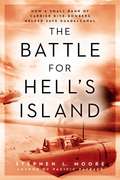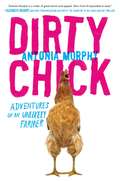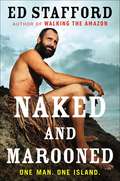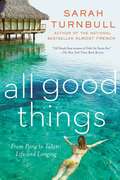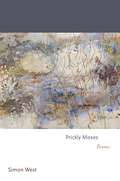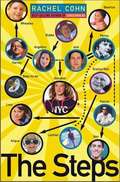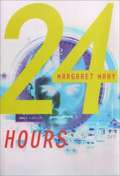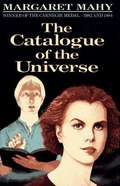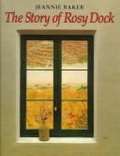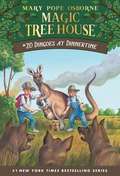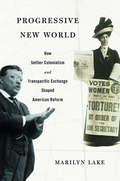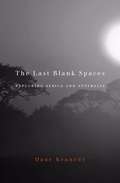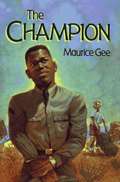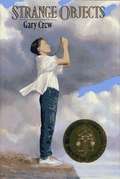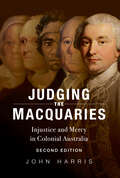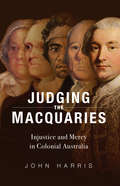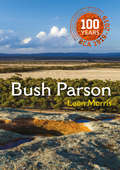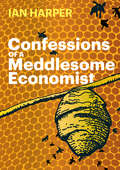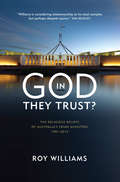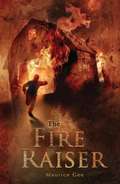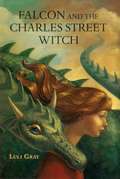- Table View
- List View
The Battle for Hell's Island
by Stephen L. MooreFrom the author of Pacific Payback comes the gripping true story of the Cactus Air Force and how this rugged crew of Dive-Bombers helped save Guadalcanal and won the war.November 1942: Japanese and American forces have been fighting for control of Guadalcanal, a small but pivotal island in Japan's expansion through the South Pacific. Both sides have endured months of grueling battle under the worst circumstances: hellish jungles, meager rations, and tropical diseases, which have taken a severe mental and physical toll on the combatants. The Japanese call Guadalcanal Jigoku no Jima--Hell's Island.Amid a seeming stalemate, a small group of U.S. Navy dive bombers are called upon to help determine the island's fate. The men have until recently been serving in their respective squadrons aboard the USS Lexington and the USS Yorktown, fighting in the thick of the Pacific War's aerial battles. Their skills have been honed to a fine edge, even as injury and death inexorably have depleted their ranks. When their carriers are lost, many of the men end up on the USS Enterprise. Battle damage to that carrier then forces them from their home at sea to operating from Henderson Field, a small dirt-and-gravel airstrip on Guadalcanal.With some Marine and Army Air Force planes, they help form the Cactus Air Force, a motley assemblage of fliers tasked with holding the line while making dangerous flights from their jungle airfield. Pounded by daily Japanese air assaults, nightly warship bombardments, and sniper attacks from the jungle, pilots and gunners rarely last more than a few weeks before succumbing to tropical ailments, injury, exhaustion, and death. But when the Japanese launch a final offensive to take the island once and for all, these dive-bomber jocks answer the call of duty--and try to perform miracles in turning back an enemy warship armada, a host of fighter planes, and a convoy of troop transports.A remarkable story of grit, guts, and heroism, The Battle for Hell's Island reveals how command of the South Pacific, and the outcome of the Pacific War, depended on control of a single dirt airstrip--and the small group of battle-weary aviators sent to protect it with their lives.
The Battle for Hell's Island: How a Small Band of Carrier Dive-Bombers Helped Save Guadalcanal
by Stephen L. MooreFrom the author of Pacific Payback comes the gripping true story of the Cactus Air Force and how this rugged crew of Dive-Bombers helped save Guadalcanal and won the war.November 1942: Japanese and American forces have been fighting for control of Guadalcanal, a small but pivotal island in Japan's expansion through the South Pacific. Both sides have endured months of grueling battle under the worst circumstances: hellish jungles, meager rations, and tropical diseases, which have taken a severe mental and physical toll on the combatants. The Japanese call Guadalcanal Jigoku no Jima--Hell's Island.Amid a seeming stalemate, a small group of U.S. Navy dive bombers are called upon to help determine the island's fate. The men have until recently been serving in their respective squadrons aboard the USS Lexington and the USS Yorktown, fighting in the thick of the Pacific War's aerial battles. Their skills have been honed to a fine edge, even as injury and death inexorably have depleted their ranks. When their carriers are lost, many of the men end up on the USS Enterprise. Battle damage to that carrier then forces them from their home at sea to operating from Henderson Field, a small dirt-and-gravel airstrip on Guadalcanal.With some Marine and Army Air Force planes, they help form the Cactus Air Force, a motley assemblage of fliers tasked with holding the line while making dangerous flights from their jungle airfield. Pounded by daily Japanese air assaults, nightly warship bombardments, and sniper attacks from the jungle, pilots and gunners rarely last more than a few weeks before succumbing to tropical ailments, injury, exhaustion, and death. But when the Japanese launch a final offensive to take the island once and for all, these dive-bomber jocks answer the call of duty--and try to perform miracles in turning back an enemy warship armada, a host of fighter planes, and a convoy of troop transports.A remarkable story of grit, guts, and heroism, The Battle for Hell's Island reveals how command of the South Pacific, and the outcome of the Pacific War, depended on control of a single dirt airstrip--and the small group of battle-weary aviators sent to protect it with their lives.
Dirty Chick
by Antonia Murphy"One month into our stay, we'd managed to dispatch most of our charges. We executed the chickens. One of the cats disappeared, clearly disgusted with our urban ways. And Lucky [the cow] was escaping almost daily. It seemed we didn't have much of a talent for farming. And we still had eleven months to go."Antonia Murphy, you might say, is an unlikely farmer. Born and bred in San Francisco, she spent much of her life as a liberal urban cliché, and her interactions with the animal kingdom rarely extended past dinner.But then she became a mother. And when her eldest son was born with a rare, mysterious genetic condition, she and her husband, Peter, decided it was time to slow down and find a supportive community. So the Murphys moved to Purua, New Zealand--a rural area where most residents maintained private farms, complete with chickens, goats, and (this being New Zealand) sheep. The result was a comic disaster, and when one day their son had a medical crisis, it was also a little bit terrifying.Dirty Chick chronicles Antonia's first year of life as an artisan farmer. Having bought into the myth that farming is a peaceful, fulfilling endeavor that allows one to commune with nature and live the way humans were meant to live, Antonia soon realized that the reality is far dirtier and way more disgusting than she ever imagined. Among the things she learned the hard way: Cows are prone to a number of serious bowel ailments, goat mating involves an astounding amount of urine, and roosters are complete and unredeemable assholes.But for all its traumas, Antonia quickly embraced farm life, getting drunk on homemade wine (it doesn't cause hangovers!), making cheese (except for the cat hair, it's a tremendously satisfying hobby), and raising a baby lamb (which was addictively cute until it grew into a sheep). Along the way, she met locals as colorful as the New Zealand countryside, including a seasoned farmer who took a dim view of Antonia's novice attempts, a Maori man so handy he could survive a zombie apocalypse, and a woman proficient in sculpting alpaca heads made from their own wool.'Part family drama, part cultural study, and part cautionary tale, Dirty Chick will leave you laughing, cringing, and rooting for an unconventional heroine.
Naked and Marooned
by Ed StaffordWhat do you do after you walk the Amazon? Ed Stafford--adventurer extraordinaire and Guinness World Record holder for walking the length of the Amazon River--likes a challenge. Casting about for an adventure that would top the extraordinary feat he recounts in Walking the Amazon, Stafford decides to maroon himself on an uninhabited island in the South Pacific. His mission: to survive for sixty days equipped with nothing--no food, water, or even clothing--except the video cameras he would use to document his time. Detailing Stafford's jaw-dropping sojourn on the island of Olourua, Naked and Marooned is a tale of unparalleled adventure and of one man's will to push himself to the outer limits--and survive.
All Good Things
by Sarah TurnballIn this lushly written follow-up to Almost French, Sarah Turnbull explores a new paradise: Tahiti. Having shared her story in her bestselling memoir, Almost French, Australian writer Sarah Turnbull seemed to have had more than her fair share of dreams come true. While Sarah went on to carve out an idyllic life in Paris with her husband, Frederic, there was still one dream she was beginning to fear might be impossible—starting a family. Then out of the blue an opportunity to embark on another adventure offered a new beginning—and new hope. Leaving behind life in the world’s most romantic and beautiful city was never going to be easy. But it helps when your destination is another paradise on earth: Tahiti.
Prickly Moses: Poems
by Simon WestCompelling poems that celebrate language as it encounters the nameless variety of the natural world, from Australia to ItalyAn uncanny blend of the external and the intimate has been a hallmark of Simon West’s poetry for nearly twenty years. In this new collection, the Australian poet and Italianist delights in the transforming and endlessly varied powers of naming and speaking. West’s intensely regional focus stands in dialogue with Europe and antiquity. Landscapes reveal the tangle of their historical dimensions, as the rivers of both the Goulburn Valley in southeastern Australia and the Po Valley in northern Italy merge and flow into the wider currents of the Southern Ocean. Again and again, language and the senses throw themselves into the nameless riot of the world, from eucalypts and clouds to a medieval bell tower and the sounds a pencil makes as it crosses a page.
The Steps
by Rachel CohnOver Christmas vacation, Annabel goes from her home in Manhattan to visit her father, his new wife, and her half and step-siblings in Sydney, Australia.
Twenty-Four Hours
by Margaret MahyDuring his first twenty-four hours after finishing high school, seventeen-year-old Ellis unexpectedly becomes part of an inner-city world far different from his comfortable life, which helps him deal with his best friend's recent suicide.
The Catalogue of the Universe
by Margaret MahyConfident Angela and intellectual Tycho seem an unlikely pair. They share a passion for deciphering the universe outside their own personal struggles. To Angela and Tycho, it seems the universe can be ordered; their own lives cannot. As their family struggles swirl around them, they are suddenly desperate to discover where they fit in.
The Changeover: A Supernatural Romance
by Margaret MahyWhen her little brother seems to become possessed by an evil spirit, fourteen-year-old Laura seeks the help of the strangely compelling older boy at school who she is convinced has supernatural powers.
Ash Road
by Ivan SouthallA raging fire spreading in the Australian bush cuts off the escape of the children and two old men entrusted to their care.
The Story of Rosy Dock
by Jeannie BakerThe plant rosy dock is not native to Australia. A newcomer who settled in the desert area of central Australia planted it in her garden. After each rare period of rain the desert blossoms, and over the years the seeds of this plant have blown their way across south, central and western Australia. Full-color collage illustrations.
Dingoes at Dinnertime (Magic Tree House #20)
by Mary Pope OsborneWildfire! That's what Jack and Annie are up against when they are whisked away to the land of Australia. And they're not alone! Jack and Annie must help a baby kangaroo and a koala escape from a fire-filled forest. Will they be able to rescue the animals in time? To find out, you'll have to read...
Transit of Venus
by Julian EvansJulian Evans won a host of awards for this smart, funny, and thoughtful travelogue through the South Pacific islands. Evans was raised in Australia, but moved to England as a teenager, and forever longed to return to the Pacific of his childhood. He sails on a freighter from Australia to cross the Pacific, stopping at a series of ever more remote islands. Along the way he discusses the politics, history, and culture of the Pacific Islanders and the Europeans with whom they so uneasily co-exist. English, not American, spelling and punctuation; also dialect here and there
Progressive New World: How Settler Colonialism and Transpacific Exchange Shaped American Reform
by Marilyn LakeIn a bold argument, Marilyn Lake shows that race and reform were mutually supportive as Progressivism became the political logic of settler colonialism at the turn of the 20th century. She points to exchanges between American and Australasian reformers who shared racial sensibilities, along with a commitment to forging an ideal social order.
The Last Blank Spaces
by Dane KennedyThe challenge of opening Africa and Australia to British imperial influence fell to a coterie of proto-professional explorers who sought knowledge, adventure, and fame but often experienced confusion, fear, and failure. The Last Blank Spaces follows the arc of these explorations, from idea to practice, intention to outcome, myth to reality.
The Champion
by Maurice GeeIn 1943 twelve-year-old Rex sees his quiet New Zealand village dramatically changed by the arrival of a black American soldier on leave from the war.
Strange Objects
by Gary CrewAfter discovering valuable relics from a seventeenth-century shipwreck, a sixteen-year-old Australian disappears under mysterious circumstances.
Judging the Macquaries: Injustice and Mercy in Colonial Australia
by John HarrisThe Black Lives Matter movement is bringing the characters of powerful people in colonial times into sharp focus, particularly their attitudes and actions towards slavery and indigenous peoples. Lachlan and Elizabeth Macquarie are among those being scrutinised and reassessed. They arrived at the penal colony of NSW, a remote outpost of the British empire in 1809. The European invaders had barely survived two decades in an alien environment but, for countless millennia, home to its Aboriginal inhabitants. Lachlan was the new governor. Elizabeth, his wife, was his closest friend and fiercest supporter.The colony was an unruly mix of convicts, soldiers and settlers. At the time, Lachlan Macquarie’s leadership was judged by his handling of the convicts. Lachlan and Elizabeth treated the convicts humanely, forgiving them and restoring them to society. His superiors considered him far too lenient, yet to Sydneysiders, as ‘The Father of Australia’, he had gifted them the path to a prosperous future.Today, Lachlan is being judged by his treatment of Aboriginal people. The Macquaries thought they were being kind, yet they ignored the injustice of dispossession. Aboriginal people were British citizens under the protection of British law – a law they were expected to obey. Although known for his humanity, Lachlan had a fatal flaw. When hostilities broke out between Aborigines and settlers on the outskirts of the colony, he took the fateful decision to send in the military. This will never be forgotten, yet his sins were the sins of the empire he tried so hard to serve.Award-winning author and historian John Harris never baulks at handling controversial subjects. In this timely book, he tackles the disputes that marked Lachlan Macquarie’s period as governor and the complex controversies which still surround his actions today.
Judging the Macquaries: Injustice and Mercy in Colonial Australia
by John HarrisThe Black Lives Matter movement is bringing the characters of powerful people in colonial times into sharp focus, particularly their attitudes and actions towards slavery and indigenous peoples. Lachlan and Elizabeth Macquarie are among those being scrutinised and reassessed. They arrived at the penal colony of NSW, a remote outpost of the British empire in 1809. The European invaders had barely survived two decades in an alien environment but, for countless millennia, home to its Aboriginal inhabitants. Lachlan was the new governor. Elizabeth, his wife, was his closest friend and fiercest supporter.The colony was an unruly mix of convicts, soldiers and settlers. At the time, Lachlan Macquarie’s leadership was judged by his handling of the convicts. Lachlan and Elizabeth treated the convicts humanely, forgiving them and restoring them to society. His superiors considered him far too lenient, yet to Sydneysiders, as ‘The Father of Australia’, he had gifted them the path to a prosperous future.Today, Lachlan is being judged by his treatment of Aboriginal people. The Macquaries thought they were being kind, yet they ignored the injustice of dispossession. Aboriginal people were British citizens under the protection of British law – a law they were expected to obey. Although known for his humanity, Lachlan had a fatal flaw. When hostilities broke out between Aborigines and settlers on the outskirts of the colony, he took the fateful decision to send in the military. This will never be forgotten, yet his sins were the sins of the empire he tried so hard to serve.Award-winning author and historian John Harris never baulks at handling controversial subjects. In this timely book, he tackles the disputes that marked Lachlan Macquarie’s period as governor and the complex controversies which still surround his actions today.
Bush Parson
by Leon MorrisThis … is my tribute to the big-hearted people I met in the outback. I want to acknowledge my debt to so many battlers in their very difficult situations. And with them I want to link those in our cities who are interested enough in what is done in this vast country to support with their prayers and their gifts those who go out to minister to their outback cousins. I am indebted to them both.,Dr Leon Morris, former principal of Ridley College, Melbourne, was best known as a respected Bible scholar and lecturer of international stature.Few would know that he spent the years of World War 2 with The Bush Church Aid Society among the people of the Minnipa Mission on the Eyre Peninsula in South Australia. With a population depleted by the war effort and tough farm conditions, Leon and Mildred Morris carried out their ministry in a parish covering thousands of square miles.In this new edition of Bush Parson celebrating the centenary of Bush Church Aid, we join with Leon in his tribute to the big-hearted people of the Australian outback.
Confessions of a Meddlesome Economist
by Ian HarperIan Harper just cannot stop meddling. During his 35-year career as a professional economist, he has worked with governments, banks, corporates and leading professional services firms at the highest level. Whether it be reviewing Australia’s competition policy, Victoria’s state finances or chairing the Australian Fair Pay Commission, he acts out of a passionate belief that economists can actually be useful.Ian’s career in economics has enabled him to participate in some of the most important debates over the future of Australia and influence some of the nation’s most talented emerging leaders. In Confessions of a Meddlesome Economist, the long-awaited revised and updated edition of his prize-winning book Economics for Life, published in 2011, Ian revisits some old debates and introduces new ones – including the purpose of place – all in the context of his professional life. There is no trace of self-indulgence or self-congratulation in this narrative, rather a thoughtful account of choices, successes and disappointments.The aim the same: to illustrate the power of good economics to improve people’s material lives and the power of the Christian faith in helping this practising economist keep his professional life in proper perspective.
In God They Trust?: The Religious Beliefs of Australia's Prime Ministers 1901-2013
by Roy WilliamsMost of Australia's leaders since Federation believed in God. Some were serious Christians and very few were indifferent towards religion. In this timely and original book, Roy Williams examines the spiritual life of each of our Prime Ministers from Edmund Barton to Julia Gillard. He explores the ways in which - for good and ill - their beliefs (or agnosticism) shaped the history and development of the nation. Featuring extensive interviews with John Howard and Kevin Rudd, and pulling no punches, IN GOD THEY TRUST? will appeal to voters across party lines and excite plenty of debate among believers and non-believers alike.
The Fire Raiser
by Maurice GeeThe night Dargie's stables burns down, Kitty Wix is knocked tumbling to the ground by strange, loping man fleeing the scene. Who is the fire-raiser who has been terrorizing the small town? Kitty and her friend Irene begin to have their suspicions as to who has been committing the crimes, as do Kitty's brother Noel and his friend Phil. Their curiosity leads them to reluctantly join forces to try and track down the arsonist. The children know they will have to act fast and catch the fire-raiser in the act for anyone to believe them. While Noel and Phil keep watch, the fire-raiser a madman with fires constantly burning in his head, strikes again -- and this time there are lives at stake....
Falcon and the Charles Street Witch (Falcon's Egg #2)
by Luli GraySince Egg flew off into the night more than a year before, Falcon fears she will never see her dragon again. Her mother wants to forget that Egg ever existed and her father never believed in dragons at all. But the magic finds Falcon again. First she leaps out of a plane after her younger brother, Toody. Then, blown to safety on a current of dragon's breath, Falcon lands in an enchanted garden on Charles Street in New York City where she is greeted by the wonderfully peculiar Blinda Cholmondely. With the help of an ancient doggerel-spouting dragon named Dirus Horribilus, the rakish Saint George, and the astonishing Charles Street Witch, Falcon sets out to rescue Toody. In this rollicking tale of adventure and surprise, not only will Falcon see her beloved Egg again, she will also discover her own extraordinarily courageous self.
